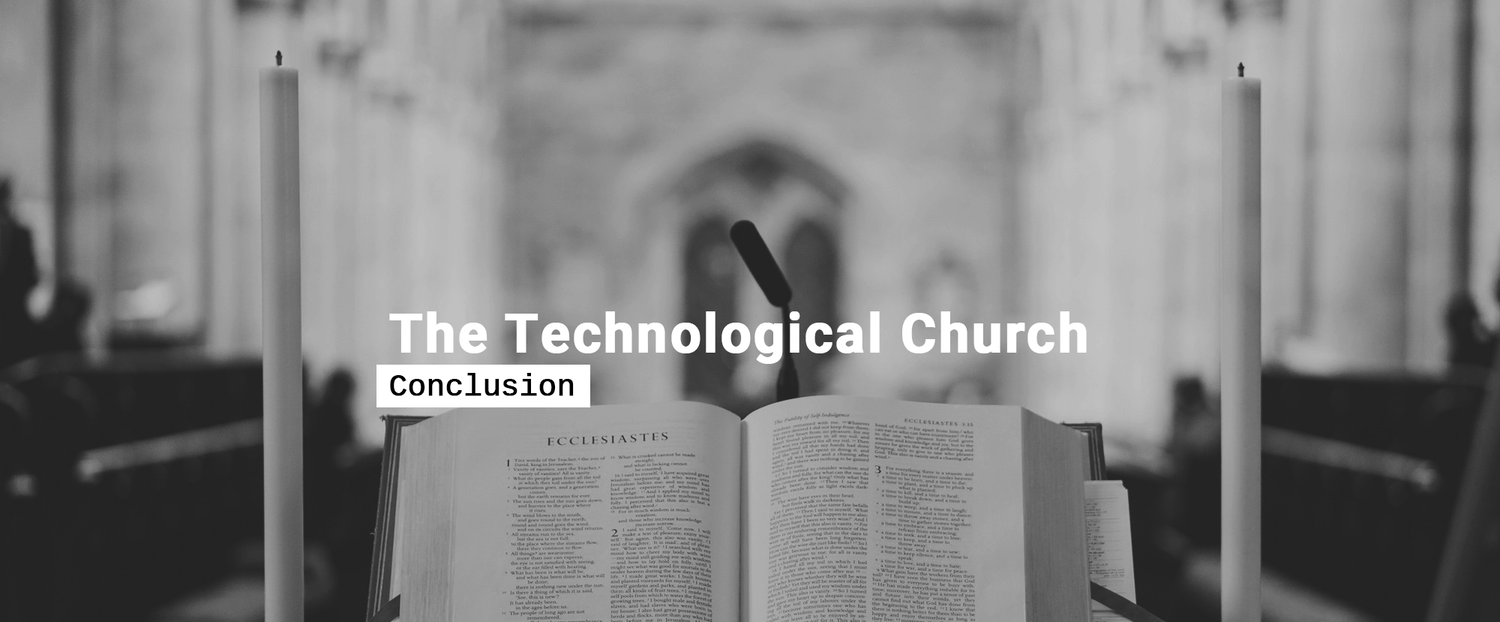
Dear Church Pastor,
Through this essay the realities of technological idiocy and heresy have been exposed, the dangers of discarnate technology have been brought to light, and the ways in which our theology is affected by this has been explored. In learning about artists, anti-environment, and prophecy, we’ve barely begun to understand how we might create a church environment that affirms the reality of incarnation. This foundation is strong, but we have yet to fully answer the question, “How then shall we live?”
The only answer I can give to that question is one of incomplete beginnings. We as Christians are called to pursue God in wholeness, presence, and reality. Any technology that draws us further into that may be adopted, but any technology that draws us away from that, any technology that defies the incarnation of Christ, must be rejected. How we go about discerning that difference is difficult to say. Perhaps we can learn from the apostle Paul when he wrote, “‘All things are lawful,’ but not all things are helpful. ‘All things are lawful,’ but not all things build up. Let no one seek his own good, but the good of his neighbor” (1 Corinthians 10:23–24, ESV). The decisions that lie ahead must be concerned with the good of both ourselves and our neighbors, for our presence to our neighbors is the presence of Christ in the world, and anything that obscures that presence is far more harmful to the good news than we may ever perceive.
Earlier, we learned from Jacques Ellul that most revolutionary thing Christians can do to pursue God in wholeness, presence, and reality is simply to live with:
“the expression of the Holy Spirit, working within us, expressing himself in our actual life, through our words, our habits, and our decisions. Thus what we need is to rediscover all that the fullness of personal life means for a man standing on his own feet in the midst of the world, who rediscovers his neighbor because he himself has been found by God.”
How that rediscovery happens is not through becoming Luddites or living in fear of all technological developments. As Christians we have been given spirits of power, of love, and of sound minds. We must have courage to ask difficult questions, love to ask self-sacrificing questions, and sound minds to ask intelligent questions.
Those questions will be asked and the answers found not within the walls of seminaries and universities but in art studios, sanctuaries, schools, homes, and everywhere the people of God are present together before him.
We must ensure our technologies are encouraging our wholeness, presence, and reality as we together seek to rediscover our neighbors so they, too, might be found by God.